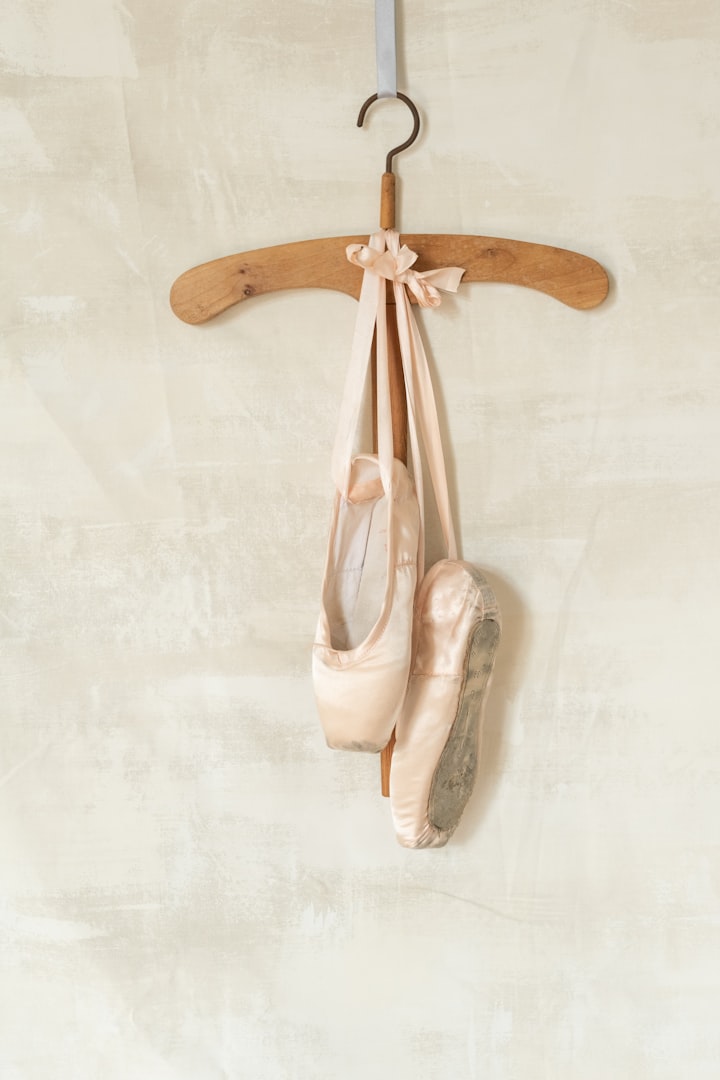Stop Pretending You Have It All
Because you don't. And that's ok.

I grew up in the 80’s and 90’s, which means I heard the statement, “You can be whatever you want when you grow up!” a lot. My parents had the best of intentions, but it still hurt when I grew up and realized this wasn’t actually true. It felt like I had somehow failed because I didn’t become the president, an astronaut, or the president of astronauts, when in fact I had been given an impossible standard to live up to. Because when someone says that you “can” do something, people usually believe that they “should” do that thing.
The same was true, apparently, for a lot of the women who heard the old adage, “You can have it all.” The problem is that’s a lie, too. No one can “have it all.” It hurts us to think that we can, and it hurts us even more to pretend that we do. So, let’s just stop, okay?
No one seriously believes they can have it all anymore, at least no one who has been paying attention. But once a seed has been planted, it’s really tough to root out, and this idea that someone someday could possibly “have it all” has dug into our brains real deep. Even if the definition of “having it all” isn’t quite the same as it used to be, the expectation is. We are secretly convinced that someone else does have it all, and that the reason we don’t is because we have somehow failed. It’s time we stopped beating ourselves up for something that is outside of our control and instead embrace the real messiness of our lives (and maybe stop looking at Instagram).
The expectations and obligations on women today are higher and more numerous than ever. When the modern American workplace came to be, it was primarily filled with (and created by) men who didn’t have to worry about responsibilities outside of work. That’s what wives were for! But over the past six decades, America’s population has shifted from primarily male-earned, single-income households, to dual-income ones and the workplace hasn’t changed how it operates to support that shift.
Even though women represent about half of the working population in America, most workplaces are still not designed to allow for flexibility, individual needs, or anything that will get in the way of the company’s bottom line. This is a problem because the jobs that were once taken care of by stay-at-home moms or “homemakers” (cooking, cleaning, child-rearing, etc.) have not been outsourced for the most part — they are usually still the responsibility of the women in heterosexual couples. This problem came sharply into focus over the last year when the global pandemic threw the biggest wrench into the American business world. Because women are still the primary caregivers in most families, they are the ones who paid the professional price for this crisis. And don’t forget that the ever-present emotional labor of managing a family still almost exclusively falls to women. In essence, the “liberated” women of the last half of the 20th century just traded one job for two.
The concept of emotional labor is not a new one; it has been documented and written about for years. More recently, Gemma Hartley gained fame for her 2017 Harper’s Bazaar article and 2018 book that plainly laid out what we mean when we say “emotional labor.” Her article went viral and had women across the country nodding their heads in agreement.
Emotional labor is texting your husband because it’s Administrative Professionals Appreciation Day and you know he and the other male attorneys he works with completely forgot. And then having a plan prepared for how they can still celebrate without appearing as though they forgot about it. You do this because the women (of course it’s women) who work for those men shouldn’t have to bear the emotional labor for this celebration, you know, like they do for basically every other celebration that is supposed to be about them (i.e., birthdays and Mother’s Day).
Emotional labor is remembering to give the dog their monthly medicine and packing your kid’s backpack every day (What day is it? Does he need his baseball glove, ballet shoes, or swimsuit?). It is knowing what time everyone needs to be somewhere and then making it happen. It is planning a vacation so that your husband can gleefully “just show up” and follow you. It is being the family manager, scheduler, therapist, and personal assistant. But even more than that, it’s being the backstop — the safety net. Everyone else can phone it in, but not you. You have to show up every day and make sure nothing falls through the cracks. There is no day off.
There is a common misconception, however, that women are just naturally better at these things (like planning and multi-tasking). While this is demonstrably false, women often take on this role within their families because they have been conditioned to believe they have no other choice. I’ll admit that I do personally enjoy planning. I am an Enneagram 6 (IYKYK) and planning is a thing that makes me feel safer about unknown situations. That being said, I do not enjoy being the sole planner of every event in my family’s life. I never asked to fill this role, but no one else stepped up to the plate. I regularly do not get recognition for the hours of preparation, loads of emotional energy, and cache of planning skills it takes to do what I do. I most certainly don’t get paid for it. And that’s the problem.
We, as a society, need to come to terms with the fact that emotional labor is actually another job. It is another form of unpaid labor (on top of cleaning, cooking, and child-rearing) that is largely performed by women. It is overwhelmingly discounted, ignored, and almost never compensated. And it’s a large reason that women can’t have it all. To be clear, even if we solved the conundrum of equally splitting emotional labor, women would still not be able to have it all because that is an unattainable goal (you can thank Anne-Marie Slaughter for letting the cat out of that bag in 2012). But if we could somehow level the playing field, women might be able to reach some semblance of balance.
Having it all is a lie, but so is the belief that it came from feminism. In reality, the concept was touted by advertisers in the 1970’s to appeal to their newly liberated-from-the-kitchen consumer, aka working women. Jennifer Szalal debunked this common misconception in a 2015 New York Times article, and yet it still lingers in the collective consciousness of working women desperately trying to find balance between their workplaces and families.
While brands and companies have been feeding off of women’s insecurities and feelings of inadequacy for decades, modern women have to deal with a phenomenon our mothers never did: social media. The pressure is now on women to not only lead the perfect life, but to photograph and document it for the world to see. Every milestone our kids reach, every holiday on the calendar, and every family outing feels like it needs a special theme, outfit, backdrop, and filter. If we dare say, “this is too much!” all we have to do is look at our feed and see the beautiful photo shoot our sister just posted before we’re back at it again. And so we find ourselves in a never-ending loop of trying to live up to our own expectations of having it all, failing, and trying again. All the while thinking there must be something wrong with us because if the girl in our newsfeed can have it all, why can’t we?
I’ll let you in on a little secret: she doesn’t. That’s right, she doesn’t have it all, and neither do you. And that’s okay, because no one can — not even Michelle Obama. We convinced ourselves we could based off of what some men in an office building sold us. In the meantime, real feminism was off fighting for common sense changes like affordable childcare, paid parental leave, fair wages, and closing the pay gaps — gender and racial — so that maybe women could have a shot at making their two jobs work.
Right now we find ourselves at an interesting, dare I say “unprecedented,” moment. America has been under some form of quarantine or social distancing for over a year now and things are starting to open back up. I can’t say I have enjoyed the past year of life, but I do recognize there are some things this time brought us which may actually be to our benefit. One is the fact that we all got served a pretty big reality check. I don’t believe that anyone would say (with a straight face) that this past year wasn’t hard or didn’t challenge them in some way.
We all got way more real with ourselves and with each other about our limitations, our feelings, and, yes, our faces without make-up on them. Social media became a place for vulnerability that it really had never been before. Sure, there were still some people trying to make you believe their lives were better than yours, but for the most part, we were all just trying to survive. This meant we let things slide that we normally didn’t (or at least didn’t admit to). Our kids had more screen-time, we didn’t bathe as often, and we relied a LOT on fast and frozen food. We had to come to terms with the fact that our lives were really messy.
I suggest that when things return to “normal” (whatever that means), we don’t go back to how we used to live and judge ourselves against an unfair and unrealistic standard. We don’t start pretending our lives are perfect again. Let’s just be real and accept that we can’t have it all. And if we keep pretending that we can, we are not only hurting ourselves, but anyone else checking out our social media.
To be clear, I don’t mean we have to choose between our family and our career. On the contrary. I’m saying we should embrace both of our jobs and do it in a way that will actually help us be happier and more fulfilled. Along the way, we can lessen the harm to other women (particularly those with less privilege) and change the standard by which we are judged to help the next generation of women not have the same struggles as us.
We can start by giving ourselves a break. It’s no accident that we have way too much on our plates and aren’t able to live up to the ridiculously high expectations we set for ourselves. That was the plan: let women join the workforce with virtually no institutional support or changes in familial obligations or duties and then tell them it’s their fault when they inevitably fail. No one can have it all. But, it is especially cruel to convince women they should be able to have it all, stack the deck against them, and then tell them the reason they are failing at both of their jobs (work and home) is their own fault. In fact, it’s gaslighting.
One way we can do this is by cutting some corners. For example, don’t make the bed every day. Hire a cleaning service to do a deep clean once a month. And if a cleaning service is way out of the budget, maybe we decide that a Marie Kondo-worthy space isn’t the most important thing in life right now. Schedule take-out meals throughout the week instead of feeling flustered and guilty at the thought and then giving in anyway because we don’t have time or energy to cook. Wear a messy bun instead of blow drying. Schedule one night a week where we aren’t expected to make dinner or take care of anyone else, and do whatever we want (visit friends, sit at a bar, or just stare at a book). Do whatever we need to do to make sure we are recharging our batteries. We can’t be effective employees, bosses, parents, or spouses if we are drained.
We can also ask for help — from our significant others, employers, and the government. We aren’t alone. There are people and systems who can help make our lives more livable if we just ask. With a significant other, we can try to redistribute the emotional or invisible labor in the family so it doesn’t all fall on us. Start small and work from there. Same goes for the workplace. Bring some ideas to the boss about ways our schedule or responsibilities can be more flexible when it interferes with our familial responsibilities. We can’t expect to get everything we ask for but asking is the first step; if we never ask, the answer will always be no. And as for the government, learn which candidates support policies that will make our lives easier, get out there and VOTE.
It should come as no surprise that my next piece of advice is to get off of, or at least limit, social media. I know it’s tough to completely go off the grid these days but try to set some boundaries if cold turkey seems too extreme. We can try turning it off over the weekends or give ourselves scheduled periods of time (that end with an alarm, so we can’t get sucked in) to scroll endlessly. We are stronger than an algorithm.
Finally, let’s have more realistic expectations for ourselves and our families. Are we going to be able to work a 60-hour week and also make it to every soccer practice? Doubtful. Can we drop off and pick up our kids every day from school and be the first one to arrive and last one to leave the office? Absolutely not. We just have to get real with our priorities and recognize when they change (because that happens, too!). Maybe it’s important to go to every school play, but not so important to make it to every basketball game. We need to communicate these decisions and expectations to our families and make it happen with our work schedules.
If doing these things seems too scary or selfish, remember that we are not just doing it for ourselves. When the people with the most privilege (white, cis-gender, straight, thin, able-bodied, middle-class, etc.), even within a marginalized group (like women), ask for and demand change, everyone with less privilege benefits. After all, a rising tide lifts all boats. This isn’t just for you or for me, it is for all of us who are struggling now and all of those who will come after us. We also can’t forget that we are teaching our children how they can live a balanced life, too. It’s important they see us living a full life (including missing things we wish we didn’t) so that they know how to advocate for one for themselves.
And someone please let my husband know that just once, I would love it if all I had to do for a vacation is show up.






Comments
There are no comments for this story
Be the first to respond and start the conversation.